- Joined
- May 1, 2008
- Messages
- 25,418
- Reaction score
- 4,999
- Location
- UK - England
- Website
- www.deviantart.com
- Can others edit my Photos
- Photos OK to edit
Or alternately the "how to sugar coat and cover it in shiny sparkles" guide to critique.
Ok no not really. However I felt that it would be prudent to talk about a side of critique which is often forgotten about; that of positive reinforcement and commentary.
Now many people often start to throw up their hands as soon as this subject is raised. They decry it as sugar coating; they say its not "telling the truth"; they say that their totally negative view is just "telling it as it is" and a multitude of other answers.
For some its about focusing on the problems and working to help others find the solutions to improve the overall quality of their work; for others its about focusing on the easier parts to comment on; for some I feel that its also because they've focused on the critical side of critique for so long that they've started to lose focus and vocabulary on how to talk about the positive side of photography.
We can see this latter problem very prevalent for many of us, indeed even myself, when we look at what comments we give and get which are positive; many just say "GREAT SHOT". To which, when we find ourselves writing it, we should pause and think - why.
WHY do I like this shot? What is the real honest reason I like it so much as to call it great; why is its positive side outweigh its imperfections to the point where I don't even see them (yes every shot has "imperfections" as life is not perfection in itself - though of course there reaches a point where those imperfections are inconsequential).
For those experienced through to those new to photography those positive sides need to be reinforced. They need to be said; not assumed or taken for granted. Furthermore I think that we as photographers need to learn the positive language and evaluation skills. We need to learn it so that we have the skill and capabilities to convey our thoughts to others and to ourselves - to be able to see works in a good light and to understand why - even if just a little.
Why is that important? Well I would argue that as important as it is to learn the problems with a shot; to be critical and improve upon imperfection - we also need to be able to look to the positive. To see what we like and why and to understand it and thus be able to follow through that train of thought; to let that side draw us to new compositions or refinement of a method.
If we are pushed by the negative then we should equally also be pulled by the positive. I feel that for too many of us we focus on the negative; on the push and pushing and not on the pull and pulling.
So no its not sugar-coating. It's not telling lies in the least. It is about looking for and understanding the positive and learning a new skill in commentary to that effect. It's about us improving the quality of our social skills on the site and in person - to be able to point and stand and say "I love this shot - and I know WHY".
Ok no not really. However I felt that it would be prudent to talk about a side of critique which is often forgotten about; that of positive reinforcement and commentary.
Now many people often start to throw up their hands as soon as this subject is raised. They decry it as sugar coating; they say its not "telling the truth"; they say that their totally negative view is just "telling it as it is" and a multitude of other answers.
For some its about focusing on the problems and working to help others find the solutions to improve the overall quality of their work; for others its about focusing on the easier parts to comment on; for some I feel that its also because they've focused on the critical side of critique for so long that they've started to lose focus and vocabulary on how to talk about the positive side of photography.
We can see this latter problem very prevalent for many of us, indeed even myself, when we look at what comments we give and get which are positive; many just say "GREAT SHOT". To which, when we find ourselves writing it, we should pause and think - why.
WHY do I like this shot? What is the real honest reason I like it so much as to call it great; why is its positive side outweigh its imperfections to the point where I don't even see them (yes every shot has "imperfections" as life is not perfection in itself - though of course there reaches a point where those imperfections are inconsequential).
For those experienced through to those new to photography those positive sides need to be reinforced. They need to be said; not assumed or taken for granted. Furthermore I think that we as photographers need to learn the positive language and evaluation skills. We need to learn it so that we have the skill and capabilities to convey our thoughts to others and to ourselves - to be able to see works in a good light and to understand why - even if just a little.
Why is that important? Well I would argue that as important as it is to learn the problems with a shot; to be critical and improve upon imperfection - we also need to be able to look to the positive. To see what we like and why and to understand it and thus be able to follow through that train of thought; to let that side draw us to new compositions or refinement of a method.
If we are pushed by the negative then we should equally also be pulled by the positive. I feel that for too many of us we focus on the negative; on the push and pushing and not on the pull and pulling.
So no its not sugar-coating. It's not telling lies in the least. It is about looking for and understanding the positive and learning a new skill in commentary to that effect. It's about us improving the quality of our social skills on the site and in person - to be able to point and stand and say "I love this shot - and I know WHY".



![[No title]](/data/xfmg/thumbnail/31/31710-590f3b7a6de1d798bc007b6ace9cf234.jpg?1619734966)

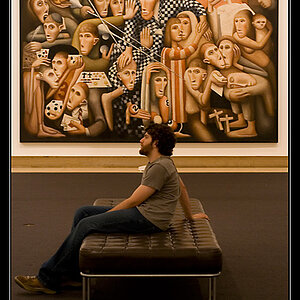
![[No title]](/data/xfmg/thumbnail/34/34348-b1d1a8e4f9da40319cac8b9f03cce084.jpg?1619736384)

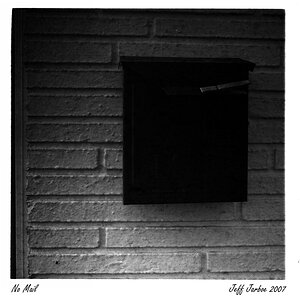
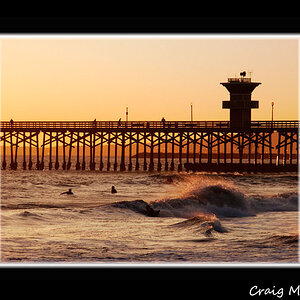
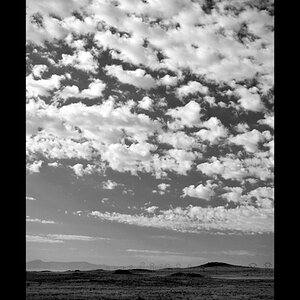
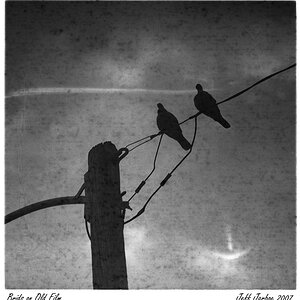

![[No title]](/data/xfmg/thumbnail/32/32807-d5379cd3a34c7d2ac3535361dd969c10.jpg?1619735667)
